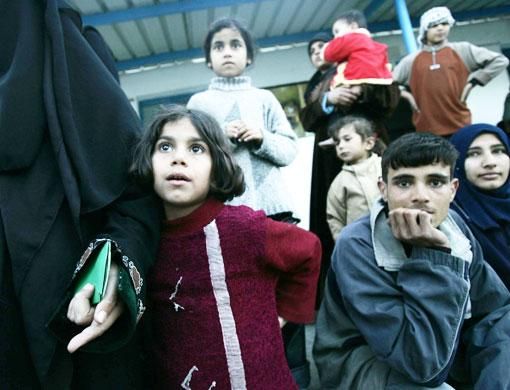Now that the jets have flown back to Israel and the tanks have rolled out, Palestinian residents have the difficult task of trying to put their lives back together. For some that means returning to homes they have fled. Those are the lucky ones. Others have no homes to return to at all, which means relying the assistance that international donors are providing.
Donations of food, blankets, mattresses and medical supplies from the UAE, as well as Saudi Arabia, Jordan, and Canada are helping to ease their suffering.
Spread across northern Gaza, some 6000 men, women and children find themselves living five families to a room in UNRWA schools. An UNRWA (United Nations Relief and Works Agency for Palestine Refugees in the Near East) employee, who asked not to be named since he is not an official spokesperson, told Gulf News that up until a couple days ago they were housing 6,000 families, or 20,000 people in 16 shelters in the north.
Those who had homes to return to have left, however about 6,200 still remain housed in classrooms, and with children scheduled to return to classes on Saturday, there is an urgent need to find each family suitable shelter.
At the Al Foca School, in the Jabaliya Refugee camp, 60 families are crowded into a dozen classrooms.
Mariam Habu's home was destroyed in the first few days of air strikes. Together with her husband and six children she says she spent eight days living with another family, and has been living at the school for 15 days. She complains that many people are still sleeping without blankets, since there are not enough to go around.
Five families, totalling 36 people are sleeping in the same room, with seven children sleeping on the same mattress. Other women express their frustration with their living conditions.
The talk about blankets and mattresses, but what mostly bothers them is that they are not in a place of their own anymore.
In the next classroom, a group of women sit in a circle in the near dark. A single light flickers on momentarily, then off again.
The women tell of losing sons and husbands, and finally their homes.
Most of the houses nearest to the border with Israel were completely wiped out, and rebuilding is a long-term project. UNRWA is hoping together with local NGOs they can provide funds so families can rent suitable accommodation.













